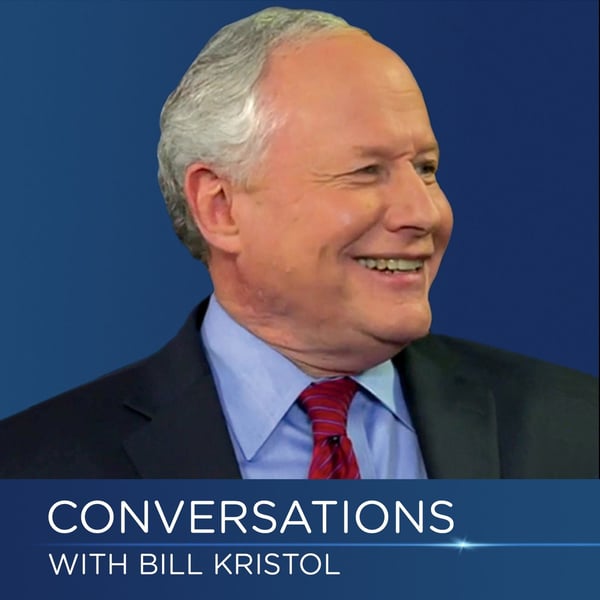Ed Glaeser: The Case for Cities
Conversations with Bill Kristol
Conversations with Bill Kristol
4.7 • 1.7K Ratings
🗓️ 27 August 2022
⏱️ 62 minutes
🧾️ Download transcript
Summary
Transcript
Click on a timestamp to play from that location
| 0:00.0 | Hi, I'm Bill Crystal. Welcome back to Conversations. I'm very pleased to be joined today by Ed Glazer, |
| 0:20.1 | chairman of the economics department at Harvard University at very distinguished microeconomist. |
| 0:25.0 | I'm stressing that Ed is, I don't know, I think I think you microeconomists have a slight |
| 0:30.1 | disdain is too strong, right? But it's like preference for being microeconomists to microeconomists. |
| 0:35.7 | Ed is known best perhaps as an economist of urban things and of cities and a student of cities |
| 0:43.6 | in ways that go beyond economics and removal. We'll touch on that, but very excellent book that |
| 0:48.8 | people should read from 2012, Triumph of the City, how our greatest invention makes us richer, |
| 0:56.9 | smarter, healthier, and happier. That's impressive. Survival of the City about a year ago. |
| 1:07.4 | And I saw you just wrote a preface that's coming up for a new edition of Mac or Olsons. |
| 1:11.9 | I did rise bookline nations, which is coming out in September. So people should look at that. We |
| 1:17.2 | can even get to talk about that book and fill it's me some in grad school, I think, and had a |
| 1:21.2 | big influence on political science, maybe more than economics. I don't know. Anyway, Ed, thank you |
| 1:25.3 | for joining me. Oh, thank you so much for having me on. It's great. No, it's great to have you. |
| 1:28.5 | So you're a fan of the city and the cities and the importance of cities and you studied them |
| 1:34.0 | in such an interesting way. Why cities can make the basic case for the fundamental importance of |
| 1:40.0 | cities? Absolutely, but I want to make it clear from the beginning that I am not advocating that |
| 1:44.7 | everyone should live in cities, nor am I advocating that the federal government should artificially |
| 1:48.4 | subsidize cities. But I think that cities have four thousands of years empowered humanity in |
| 1:55.2 | ways that are incredibly important. I mean, if you think about us as a species, our greatest talent |
| 2:00.8 | is our ability to work together, right? I mean, on our own, we're really puny creatures. I mean, |
| 2:06.3 | few of us could take on a bear without, you know, without external help. But collectively, we've |
| 2:12.4 | done amazing things. And I think we're continuing to do amazing things. And cities have made that |
... |
Please login to see the full transcript.
Disclaimer: The podcast and artwork embedded on this page are from Conversations with Bill Kristol, and are the property of its owner and not affiliated with or endorsed by Tapesearch.
Generated transcripts are the property of Conversations with Bill Kristol and are distributed freely under the Fair Use doctrine. Transcripts generated by Tapesearch are not guaranteed to be accurate.
Copyright © Tapesearch 2025.

